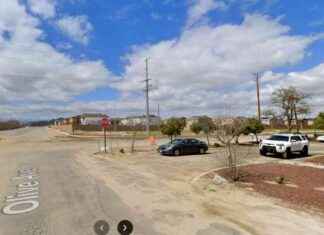After 59 days of war against the fundamentalist group Hamas and while trying, with air strikes and hand-to-hand combat, to complete control of strategic areas in the north of the Gaza Strip such as Jabalia and the Gazan Shujaiya neighborhood, the Israeli Army has expanded its ground operation south of the Palestinian enclave.
The incursion towards Khan Yunis – not yet on the scale of the one that began in the north at the end of October – appears complex both due to the presence of the armed wing of Hamas and hundreds of thousands of inhabitants. Many of them are displaced after the bombings and the invasion in the north that are now called for a second evacuation. The humanitarian situation in the densely populated south (1.7 million of the 2.3 million inhabitants in the Strip) is fundamental in the ground operation and in the course of the war, being one of the main issues in the close communication between Israel and the US. The Israeli cabinet plans to approve an increase in humanitarian aid and especially fuel, as requested by its great ally.
According to a witness cited by France Presse, dozens of tanks and other military vehicles entered through the Kisufim border checkpoint about two kilometers to Al Qarara, a town northeast of Khan Younis. “The tanks are already on the Salahadin road,” revealed Palestinian Moaz Mohamed about the main road that connects the south with the north. The troops were almost six kilometers from the city.
Hours after military spokesman Daniel Hagari announced “the expansion of ground operations,” the Air Force dropped thousands of leaflets on Khan Yunis to request the immediate evacuation of six neighborhoods, warning that they would soon launch an attack “with the objective to destroy Hamas”. “The fate of the terrorists in the south of Gaza will be the same or worse than in the north,” warned Defense Minister Yoav Gallant, minutes before an intense bombardment. The armed wing of Hamas, for its part, boasted of having managed to hit the Army.
“The fighting and military advance in the Khan Younis area does not allow the movement of civilians through Salahadin in the sections north and east of the city of Khan Younis. In these sections, it constitutes a battlefield,” “So it is extremely dangerous to reach him!” warned the military spokesman in Arabic, Avichai Adraee, on the X network before signaling a new humanitarian corridor.
Almost 1.9 million people (more than 80% of the population) have been displaced since the start of the war, according to the UN, which warns that the three areas towards Rafah that Israel asked to evacuate are very saturated. And they are not safe, as Palestinian Nesrine Abdelmoty tells Reuters with fear and indignation: “They told people to move from the north to Khan Younis because the south is safer. And now they have bombed Khan Younis. Even if Khan Younis is not “It’s safe now and we move to Rafah, Rafah is not safe either. Where do they want us to go?”
Overcrowding in the south, a reflection of the rampant humanitarian crisis, may be the prelude to the spread of epidemics. Visiting Gaza, the president of the International Committee of the Red Cross, Mirjana Spoljaric, denounced “the intolerable suffering of the population” and called for “civilians to be protected in accordance with the laws of war and assistance to be allowed in.” without obstacles” and the release of the hostages and allow the visit of his organization.
Israeli Prime Minister Benjamin Netanyahu reiterates that, unlike previous escalations, the operation will go “to the end.” The end of Hamas in Gaza. But after the harsh testimonies of the freed kidnapped people, the families of those still in captivity are increasing the pressure to prioritize their release over the destruction of Hamas, which they accuse of not releasing 15 women and two children, thus avoiding the extension of the truce last Friday.
Yami Ashkenazi demands that his Government do everything possible for the return of his sister Doron (30) and the rest of the kidnapped people. “We have already seen what the Hamas terrorists did to women at the music festival. In our kibbutz they burned women to death. I don’t even want to imagine what they do to my sister. That’s why I pray that they return her right now,” ask in Tel Aviv.
Although Israeli bombs and Palestinian projectiles once again have the say, the mediation channel for a new ceasefire has not been completely closed.






